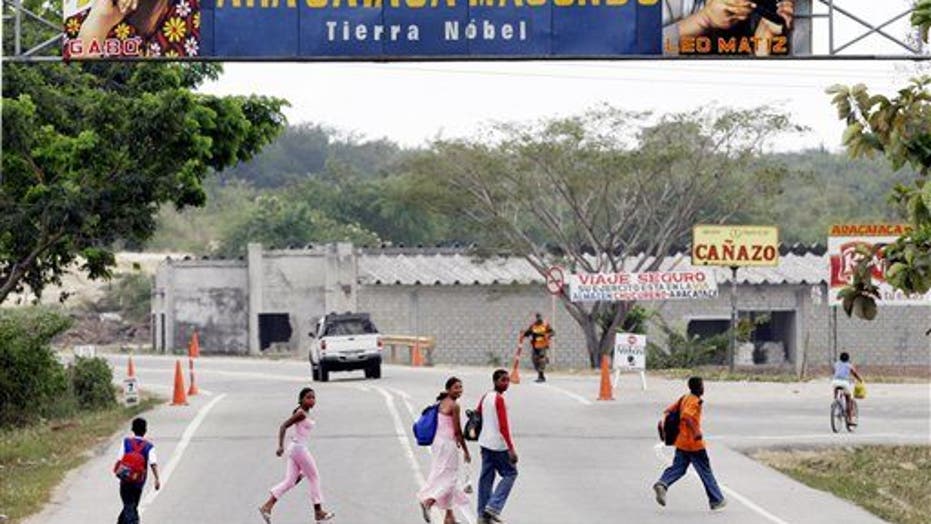He was their most famous son. Aracataca, a small town near the Caribbean coast of Colombia, was the birthplace of one of the literary giants of the 20th century.
And while Gabriel García Márquez put the town on the map – it was the inspiration for Macondo, the fictional town made famous in the Nobel Prize-winning author’s most important work, “One Hundred Years of Solitude” – once he left Aracataca, he never moved back.
Yet he is still revered in the town where he spent his childhood – and where he was given the rock star treatment with confetti and fireworks when he returned for a brief visit in 2007.
And even though García Márquez had made Mexico his home decades ago, the town where his grandfather told him the ghost stories that encouraged him to become a writer still claims him as their own.
And now it wants to be his final resting place, according to Colombia’s El Tiempo.
- Gabriel Garcia Marquez, Literary Giant, Dead At 87
- Gabriel García Márquez To Be Cremated, Novelist Honored By Colombia, Mexico
- Amid Praise For Gabriel Garcia Marquez, Criticism Over His Bond With Fidel Castro
- Gabriel García Márquez Used Nobel Speech To Stand Up For Latin America
- Gabriel García Márquez Vs. Mario Vargas Llosa: Literary Friendship Ended With Allegations Of Betrayal, Infidelity
- Gabriel García Márquez, 1927-2014, 87 Years Of Genius And Wonder
- Hispanic Nobel Laureates in Literature
- Best Pix Of Latin America
The mayor of Aracataca declared five days of mourning and plans to hold a symbolic burial for the novelist, with a mass, procession and cultural events on Monday that will end at Casa Museo, García Márquez’s childhood home.
But they are asking the writer’s family, and the Colombian government, to bring García Márquez back to where he always belonged.
"It would be an honor for us," said the mayor, Tufith Hatum, according to El Tiempo.
But even as García Márquez was revered by many in Aracataca, other residents were bitter that the writers didn’t do more for his impoverished hometown.
Some of García Márquez's mixed feelings toward the land of his birth stemmed from how he was treated for his leftist political views. He fled the country in 1981 after friends and government officials warned him that the army wanted to interrogate him for alleged ties to the now-defunct M-19 guerrilla group.
When he was awarded the Nobel Prize a year later, Conservative Party President Belisario Betancur attempted to quash the international backlash against the author's treatment by offering García Márquez ambassadorships in Europe. But it was too late.
García Márquez would always maintain a critical distance from his homeland, proclaiming himself a "wandering and nostalgic Colombian."
Regardless of ideology, García Márquez always sought to use his proximity to those in power to strengthen the country's democracy and bring about peace, Betancur said.
"He's the most eminent Colombian of all time," the 91-year-old former leader declared in a telephone interview.
Includes material from The Associated Press.
Follow us on twitter.com/foxnewslatino
Like us at facebook.com/foxnewslatino









































